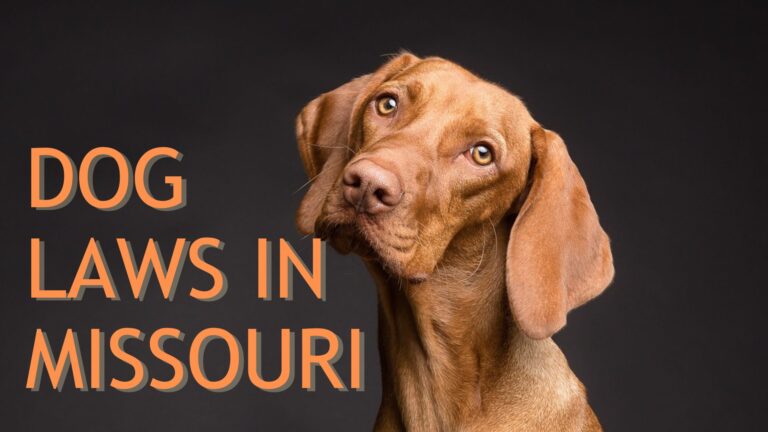Dog laws in Delaware
Navigating the intricate landscape of dog laws in Delaware is crucial for responsible pet ownership. As a veterinarian deeply invested in the welfare of our canine companions, I’ve witnessed firsthand the impact of legal frameworks on dogs’ lives.
In Delaware, legislation spans from licensing and control to anti-cruelty measures and breed-specific statutes. For instance, recent data indicates that approximately 65% of dogs in U.S. shelters are labeled as pit or pit mixes, with Delaware taking progressive steps to prohibit breed-specific legislation. Understanding these laws is not just about compliance; it’s about ensuring the safety and well-being of our pets and community.
Each statute, whether it’s for rabies control or the Animal Population Control Program, intertwines to form a safety net that upholds humane treatment and responsible care. It’s a narrative of compassion, woven into the legal fabric, that protects both humans and their beloved pets.
Table of Contents
Dog Bite Laws in Delaware
Delaware’s approach to dog bite laws is multifaceted, aiming to protect citizens while also considering the rights of pet owners. The state’s legal framework is designed to address various scenarios, from unprovoked attacks to incidents where a person’s actions may have contributed to the dog’s behavior.
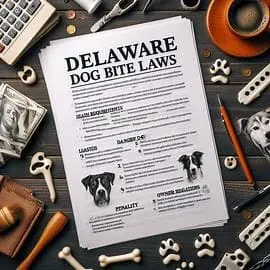
Understanding Strict Liability
In Delaware, dog owners are held to a strict liability standard. This means that if a dog bites or injures someone, the owner is liable for damages regardless of the dog’s previous behavior or the owner’s knowledge of any aggressive tendencies. This law is in place to ensure victims can seek compensation for medical expenses, lost wages, and other related costs without the need to prove negligence on the part of the dog owner.
The “One Bite” Rule and Beyond
While strict liability covers most situations, Delaware also acknowledges the “one bite” rule. This rule suggests that if a dog has previously bitten someone or displayed dangerous behavior, the owner may be held liable for subsequent incidents. This aspect of the law encourages owners to take proactive measures to prevent future attacks, such as training or securing their pets.
Preventive Measures and Penalties
Delaware law mandates that owners of dogs with a history of biting or aggression must take specific preventive measures. These include leashing and muzzling the dog in public spaces and ensuring secure containment at home. Failure to comply with these regulations can result in a class A misdemeanor penalty, emphasizing the seriousness with which Delaware treats public safety concerning dog bites.
Navigating Dog Bite Incidents
If a dog bite occurs, the law outlines clear steps for both the victim and the dog owner. Victims should seek medical attention and report the incident to local authorities. Owners are required to provide information about their dog’s vaccination status and may need to comply with quarantine procedures to rule out the risk of rabies.
Dog Barking and Noise Laws in Delaware
In Delaware, the tranquility of neighborhoods and the well-being of its residents are taken seriously, and this extends to managing the noise levels of our furry friends. Dog barking and noise laws are in place to maintain a harmonious environment for all.
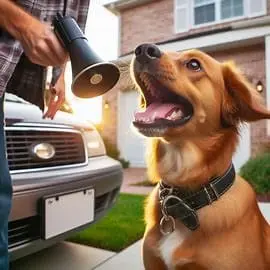
The Legal Framework
Delaware’s legal stance on dog barking is clear: owners must prevent their dogs from causing a noise disturbance. A noise disturbance is defined as continuous barking for more than 15 minutes or intermittent barking totaling over 30 minutes within a day. This law aims to balance the rights of pet owners with the rights of the community to enjoy a peaceful living space.
Exemptions and Considerations
While the law is strict, there are exemptions to consider. For instance, if a dog barks excessively in response to an intruder or as a reaction to an immediate threat, this may not be deemed a noise disturbance. The law recognizes that dogs may bark to communicate or alert their owners of potential dangers.
Enforcement and Penalties
Enforcement of these laws is typically handled by local animal control officers. Penalties for violating noise ordinances can range from warnings to fines, depending on the severity and frequency of the offense. Repeat offenders may face more stringent consequences, emphasizing the importance of adhering to these regulations.
Preventive Measures for Dog Owners
As a dog owner, there are several steps you can take to prevent noise complaints. Training your dog to respond to commands, providing adequate exercise, and addressing any underlying health issues that may cause excessive barking are all effective strategies. Additionally, ensuring your dog has a comfortable living environment can reduce anxiety-related barking.
Dog Poop Disposal Laws in Delaware
Delaware takes the cleanliness of its public spaces and the health of its environment seriously, which is reflected in its dog poop disposal laws. As a pet owner, it’s essential to understand and adhere to these regulations to maintain the beauty and safety of the community.
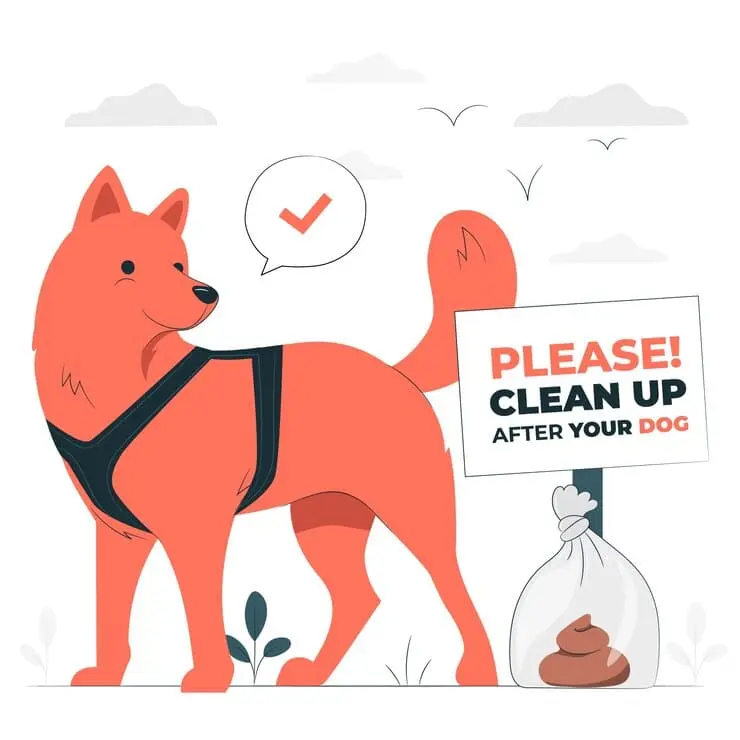
The Importance of Proper Disposal
Proper disposal of dog waste is not just a matter of courtesy; it’s a legal requirement in Delaware. Dog feces can contain harmful bacteria and parasites, posing a risk to public health and the environment. By following the state’s disposal laws, you contribute to the well-being of your fellow citizens and the local ecosystem.
Statewide Regulations
In Delaware, the law requires that all pet owners must promptly clean up after their dogs on any public or private property, other than the owner’s property. This includes parks, sidewalks, and even the common areas of apartment complexes. Failure to do so can result in fines and other penalties.
Local Ordinances
While statewide laws provide a framework, local municipalities may have additional ordinances regarding dog poop disposal. It’s crucial to familiarize yourself with the regulations specific to your area to ensure full compliance.
Disposal Methods
The state encourages environmentally friendly disposal methods. This includes using biodegradable bags and disposing of waste in designated pet waste stations or your trash. Composting is not recommended due to the potential health risks associated with pathogens in dog waste.
Community Impact
Adhering to dog poop disposal laws has a significant impact on the community. It keeps public spaces clean, protects waterways from contamination, and reduces the spread of disease. It also fosters a sense of respect and responsibility among pet owners.
Dog Licensing Laws in Delaware
Delaware, known for its proactive stance on pet welfare, mandates dog licensing as a cornerstone of responsible pet ownership. This article delves into the specifics of dog licensing laws in the state, providing pet owners with the knowledge they need to ensure compliance.
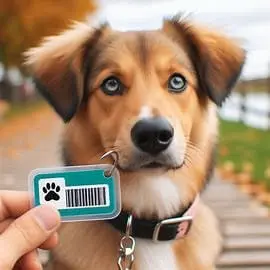
The Essence of Dog Licensing
Licensing your dog in Delaware is more than a legal formality; it’s a critical measure for public safety and pet identification. Licensed dogs are easily traceable back to their owners, which is invaluable in cases of loss or emergency. Moreover, licensing fees contribute to animal welfare programs, including shelters and rabies clinics.
Who Needs a License?
In Delaware, all dogs aged six months and older must be licensed. This requirement is part of a broader effort to maintain a database of vaccinated and identifiable pets, which is essential for public health and safety.
Vaccination and Licensing: A Dual Requirement
A valid rabies vaccination certificate is a prerequisite for obtaining a dog license in Delaware. This dual requirement underscores the state’s commitment to preventing the spread of rabies, a deadly virus that poses a significant threat to both animals and humans.
License Duration and Renewal
Dog licenses in Delaware are available for one, two, or three years, aligning with the rabies vaccination’s validity. This flexibility allows pet owners to choose a licensing period that best suits their needs while ensuring continuous compliance with state laws.
Fees and Waivers
The state has set reasonable fees for dog licensing, with reduced rates for spayed or neutered dogs and senior citizens. Additionally, service dogs, such as guide dogs or those with former U.S. military service, are eligible for fee waivers, acknowledging their invaluable role in society.
Late Fees and Compliance
Timeliness is crucial when it comes to dog licensing. A grace period of 30 days post-expiration or acquisition of a new dog is provided, after which a late fee is imposed. This policy encourages prompt renewal and helps maintain an up-to-date registry of pets.
Dog Leash Laws in Delaware
Delaware is known for its pet-friendly communities and responsible pet ownership laws. Among these, dog leash laws play a pivotal role in ensuring public safety and the well-being of pets. This comprehensive guide will explore the leash laws enforced in Delaware, providing pet owners with the necessary information to comply with state regulations.
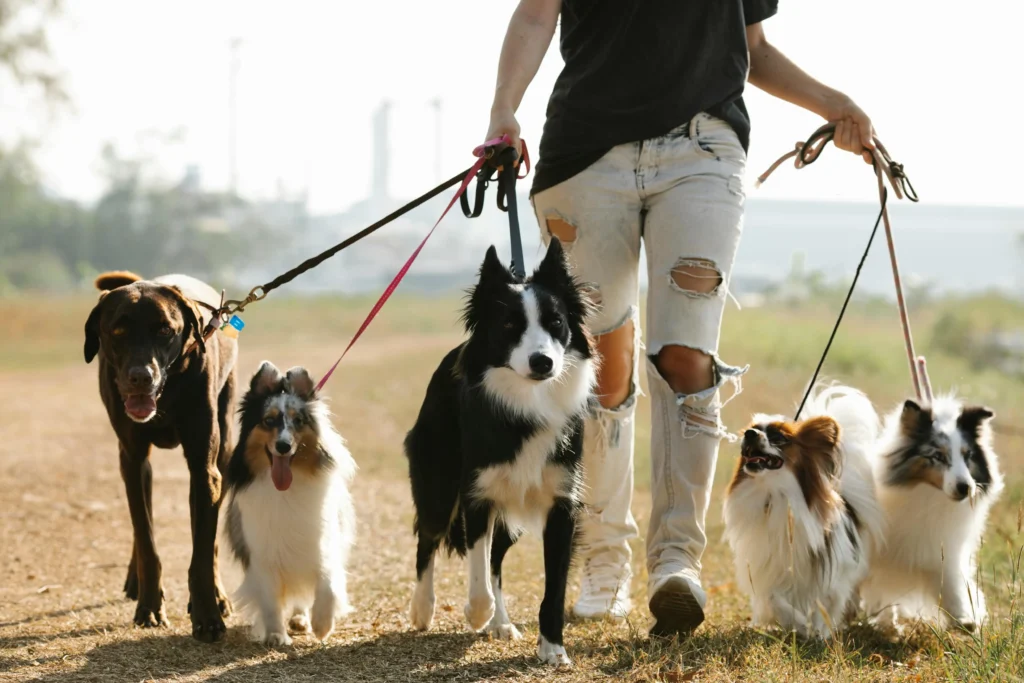
Understanding Delaware’s Leash Laws
Delaware mandates that dogs must be under control and not allowed to “run at large” at any time. This means that when outside, dogs must be secured by an appropriate leash that is fit for the dog’s size. The law is designed to prevent accidents, protect wildlife, and ensure that all community members can enjoy public spaces safely.
Leash Requirements
The state specifies that a dog is not considered at large if it is:
- On the owner’s property.
- On private property with permission.
- In a vehicle.
This distinction is crucial as it allows for certain freedoms while still holding dog owners accountable for their pet’s actions.
Public Spaces and Dog Parks
While leash laws are strict, Delaware offers designated areas where dogs can roam freely. These dog parks are enclosed and provide a safe environment for dogs to exercise and socialize off-leash. However, outside these designated areas, leash laws are strictly enforced.
Penalties for Non-Compliance
Failure to adhere to leash laws can result in penalties ranging from warnings to fines. Repeat offenders may face more severe consequences, including the possibility of having their pet impounded. These measures emphasize the importance of following leash laws for the safety of all.
The Role of Pet Owners
As a pet owner, it’s your responsibility to understand and comply with leash laws. This includes using a leash in public spaces, ensuring your pet is secure on your property, and respecting the rules of dog parks. By doing so, you contribute to a safe and enjoyable environment for everyone.
Dangerous Dog Laws in Delaware
Delaware’s commitment to public safety and animal welfare is evident in its comprehensive dangerous dog laws. These laws are designed to protect citizens from dogs that have shown aggressive behavior, while also ensuring that responsible dog owners are not unjustly penalized.
Defining a Dangerous Dog
In Delaware, a “dangerous dog” is defined not by breed but by behavior. A dog may be declared dangerous if it has attacked, inflicted injury, or otherwise posed a serious threat to humans or other domestic animals. This definition underscores the state’s focus on individual dog behavior rather than breed stereotypes.
Legal Proceedings for Dangerous Dogs
When a dog is suspected of being dangerous, the law outlines specific procedures for its seizure and impoundment. The owner is notified and a hearing is conducted to determine the dog’s status. If a dog is declared dangerous, the owner must comply with stringent regulations to ensure public safety.
Regulations for Owners of Dangerous Dogs
Owners of dogs declared dangerous must adhere to several requirements, including:
- Securing the dog in a proper enclosure.
- Posting visible warning signs.
- Obtaining liability insurance.
- Ensuring the dog wears a special identification tag.
These measures are intended to prevent future incidents and signify the seriousness with which Delaware treats the issue of dangerous dogs.
Consequences of Non-Compliance
Failure to comply with the regulations for dangerous dogs can lead to severe penalties, including fines and the possibility of the dog being permanently removed from the owner’s custody. These consequences highlight the importance of responsible pet ownership and adherence to the law.
Preventive Measures and Education
Delaware encourages dog owners to take preventive measures to avoid their pets being declared dangerous. This includes proper socialization, training, and understanding of dog behavior. Educational resources are available to help owners recognize and address aggressive tendencies before they escalate.
Dog Health and Welfare Laws in Delaware
Delaware’s commitment to animal welfare is reflected in its comprehensive dog health and welfare laws. These laws are designed to protect dogs and ensure they live healthy, happy lives. This article will provide an overview of these laws, focusing on the key points that every dog owner in Delaware should know.

Animal Cruelty Laws
Delaware takes a strong stance against animal cruelty. The state’s laws prohibit neglect, abuse, and mistreatment of dogs. This includes ensuring that dogs have access to clean water, nutritious food, and adequate shelter. Violations of these laws can lead to significant legal consequences, including fines and imprisonment.
Rabies Control
To protect public health and animal welfare, Delaware requires all dogs to be vaccinated against rabies. The law mandates that dogs must receive the rabies vaccine by six months of age and maintain up-to-date vaccinations throughout their lives.
Dog Control and Licensing
Delaware law requires all dogs to be licensed. This helps in identifying dogs and ensuring they are vaccinated against rabies. Licensing also plays a crucial role in reuniting lost dogs with their owners.
Dangerous Dogs
The state has specific regulations for dogs deemed dangerous. Owners of such dogs must follow strict guidelines to prevent any potential harm to the public. This includes proper containment and displaying warning signs on their property.
Shelter Standards Law
Delaware has established standards for animal shelters, ensuring that dogs receive proper care and live in humane conditions. These standards cover various aspects of shelter operation, including sanitation, veterinary care, and record-keeping.
Animal Population Control Program
The state runs an Animal Population Control Program aimed at reducing the number of unwanted pets. This includes spaying and neutering programs, which are essential for controlling the dog population and preventing overburdening shelters.
Animal Welfare Officer Certification
Delaware requires animal welfare officers to be certified. This ensures that individuals enforcing animal welfare laws are properly trained and knowledgeable about the best practices in animal care and control.
Pet Warranties Law
The Pet Warranties Law protects consumers who purchase dogs from breeders or pet stores. It ensures that dogs are healthy at the time of sale and provides recourse if a dog is found to have a significant health issue shortly after purchase.
Dog Public Access Laws in Delaware
Delaware is known for its clear and structured approach to dog public access laws, ensuring safety and accessibility for all. This guide will explore these laws in detail, providing dog owners with the knowledge they need to navigate public spaces with their pets.
Public Access and Leash Laws
In Delaware, dogs are not allowed to “run at large” at any time. This means that dogs must be secured by an appropriate leash unless they are on their owner’s property, on another person’s property with permission, or in a vehicle. This law is in place to prevent accidents and ensure the safety of both the public and the dogs.
Access to Public Spaces
Dogs are welcome in many public spaces in Delaware, provided they are leashed. However, there are certain areas where dogs may be restricted, such as playgrounds, public swimming areas, and certain wildlife preserves. It’s important for dog owners to be aware of and respect these restrictions.
Service Animals
Delaware adheres to the Americans with Disabilities Act (ADA), which allows service animals to accompany their handlers in all public areas. This includes restaurants, stores, and other businesses. Service animals are trained to perform specific tasks for individuals with disabilities and are not considered pets under the law.
Dog-Friendly Areas
Delaware offers a variety of dog-friendly parks and beaches where dogs can enjoy off-leash time in designated areas. These areas are designed to provide a safe environment for dogs to exercise and socialize. Owners are expected to supervise their dogs and ensure they are well-behaved.
Weather-Related Restrictions
The state has specific regulations concerning dogs left outside during inclement weather. Dogs are not allowed to be confined outside and unattended during conditions that pose a serious risk to their health and safety, as determined by the National Weather Service.
Tethering Regulations
Delaware’s tethering law stipulates that a dog shall be considered outside regardless of access to an outdoor dog house or similar structure. However, a dog actively engaged in the protection of livestock or farm property shall not be considered “outside and unattended” provided that such a dog has uninterrupted access to enter a dry agricultural building like a barn.
Dog Travel and Transportation Laws in Delaware
Delaware, with its pet-friendly approach, has established laws to ensure the safe travel and transportation of dogs. This article will provide a comprehensive overview of these laws, focusing on the key points that every dog owner in Delaware should know.
Leash and Control Laws
When traveling with dogs in Delaware, owners must keep their pets under control at all times. Dogs are not allowed to run off-leash outside and must be secured with a proper leash fit for the dog’s size. This law applies whether you are walking your dog in a park or transporting them in a vehicle.
Transportation in Vehicles
Delaware law requires that dogs in vehicles be properly restrained. This can be achieved through the use of crates, harnesses, or other means to prevent the dog from distracting the driver or becoming a projectile in the event of a sudden stop.
Public Transportation Access
Service animals are permitted on public transportation in Delaware, including buses and trains. These animals are trained to perform specific tasks for individuals with disabilities and are protected under the Americans with Disabilities Act (ADA).
Air Travel
For air travel, Delaware follows federal regulations, which require that dogs be safely contained in an appropriate carrier. Airlines may have additional requirements, so it’s important to check with the airline before traveling.
Tethering Regulations
Delaware has specific laws regarding tethering dogs. It is against the law to tether a dog for longer than nine consecutive hours while the owner is home, or longer than two hours when the owner is not home. The tether must be at least 10 feet in length and not attached to a choke, pinch, prong, or martingale collar.
Extreme Weather Conditions
During extreme weather conditions, such as a National Weather Service hazardous weather advisory or warning, dogs may not be left outside and unattended. This includes during travel, where adequate shelter and protection must be provided.
Dog Housing and Accommodation Laws in Delaware
Delaware’s dog housing and accommodation laws are designed to ensure the well-being of pets and the rights of their owners. This guide will explore these laws in detail, providing dog owners with the necessary information to navigate housing and accommodation scenarios with their pets.
Service Animals and Housing
Under Delaware’s Equal Accommodations Law, service animals trained to assist individuals with physical disabilities are allowed in all housing facilities. This includes guide dogs, signal dogs, and other animals trained to perform tasks such as pulling a wheelchair or fetching dropped items. The law ensures that individuals with service animals have equal access to housing without discrimination.
Emotional Support Animals
While emotional support animals (ESAs) provide therapeutic benefits, they are not considered service animals under Delaware law. However, landlords must make reasonable accommodations for individuals with ESAs as determined by a licensed mental health professional. This includes waiving no-pet policies or pet fees for housing facilities.
Fair Housing Law
Delaware’s Fair Housing Law prohibits discrimination in selling or renting housing based on disability. This law requires landlords and housing providers to make reasonable accommodations for those with disabilities, including accommodations for service animals.
Accommodation in Public Spaces
Service animals are allowed in public accommodations such as hotels and motels that cater to the transient public. Delaware law includes state and local agencies in its definition of public accommodations, ensuring service animals can accompany their handlers in these spaces.
Housing Providers’ Responsibilities
Housing providers in Delaware are required to allow service animals and make reasonable accommodations for ESAs without extra charges. They must also ensure that their facilities do not prohibit access to individuals with disabilities who rely on these animals for assistance.
Tenant Responsibilities
Tenants with service animals or ESAs must ensure their animals do not pose a direct threat to the health or safety of others and do not cause significant damage to the property of others. They must also comply with local health and safety laws, including vaccination and licensing requirements.
Dog Adoption and Sale Laws in Delaware
Delaware is committed to ensuring the humane treatment of dogs, whether through adoption or sale. This comprehensive guide will explore the laws governing dog adoption and sale in the state, providing clarity for potential pet owners and breeders alike.

Regulatory Framework for Dog Adoption
Adoption laws in Delaware are designed to protect both the animals and the individuals who wish to adopt them. Animal shelters and rescue organizations are regulated to ensure they provide proper care for dogs awaiting adoption. These regulations include standards for housing, nutrition, and veterinary care to ensure the well-being of the dogs.
Licensing Requirements for Retail Dog Outlets
Retail dog outlets in Delaware must adhere to strict licensing requirements. This includes ensuring that all dogs for sale are in good health, have received necessary vaccinations, and are properly identified. Retail dog outlets are also required to maintain records of each dog’s origin, health history, and any veterinary treatments received.
Consumer Protection Laws
Delaware’s Pet Warranties Law provides protection for consumers who purchase dogs from breeders or pet stores. This law ensures that dogs are healthy at the time of sale and offers recourse if a dog is found to have a significant health issue shortly after purchase.
Disclosure Requirements
Sellers are required to provide buyers with detailed information about the dog at the time of sale. This includes the dog’s breed, age, health status, vaccination records, and any known congenital or hereditary conditions. This transparency is crucial for informed decision-making by potential dog owners.
Regulations on Breeding Practices
The state imposes regulations on breeding practices to prevent overpopulation and ensure the health of breeding dogs. Breeders are expected to follow ethical breeding standards, which include providing adequate space, nutrition, and medical care for both the breeding dogs and their litters.
Spay and Neuter Programs
Delaware encourages spaying and neutering to control the pet population and reduce the number of unwanted dogs. The state supports programs that offer these services at reduced costs, making them accessible to a broader segment of the population.
Anti-Cruelty Laws
Delaware’s anti-cruelty laws are robust, prohibiting the mistreatment, neglect, or abuse of dogs. These laws apply to both individual owners and commercial establishments, ensuring that all dogs in Delaware are treated with respect and care.
Dog Park and Recreation Laws in Delaware
Delaware is a state that values the joy and companionship that dogs bring to their owners. With numerous parks and recreational areas open to dogs, it’s important for dog owners to understand the laws and regulations that ensure these spaces are enjoyable and safe for everyone.
Leash Requirements in Public Spaces
In Delaware, dogs must be on a leash that is no longer than 6 feet when in public parks, except in designated off-leash areas. This rule helps prevent conflicts with other park users and wildlife, ensuring a harmonious environment for all.
Designated Off-Leash Areas
Delaware provides designated off-leash areas where dogs can run and play freely. These areas are fenced and have rules posted at the entrance to ensure the safety of both dogs and their owners. It’s important for owners to supervise their dogs and ensure they are well-behaved even in these off-leash zones.
Dog Etiquette in Parks
While not strictly laws, following good dog etiquette in parks is essential. This includes picking up after your dog, preventing them from digging or damaging park property, and ensuring they do not disturb wildlife or other park users.
Tethering Regulations
Delaware law restricts tethering dogs in public areas. Dogs cannot be tethered for more than 9 consecutive hours while the owner is home or more than 2 hours when the owner is not home. Additionally, the tether must be at least 10 feet in length and not attached to a choke, pinch, prong, or martingale collar.
Extreme Weather Conditions
Dogs may not be left outside and unattended during National Weather Service hazardous weather advisories or warnings. This includes times when dogs are at parks or recreational areas. Owners must provide adequate shelter and protection for their dogs in such conditions.
Shelter and Shade Requirements
When dogs are brought to parks, they must have access to a shelter that is moisture-proof and windproof, with clean, dry bedding. During warmer months, separate shaded areas must be provided to protect dogs from direct sunlight.
Hunting and Training Exceptions
Dogs may be off-leash while actively training for hunting in designated dog-training areas or while hunting with the appropriate permit. Owners must still maintain control over their dogs during these activities.
Responsibilities of Dog Owners
Dog owners are responsible for ensuring their pets are vaccinated, licensed, and wearing identification tags. They must also follow all park rules regarding the entry of pets into specific areas and honor any signs that prohibit the entry of pets.
Dog Food and Nutrition Laws in Delaware
In Delaware, the health and well-being of pets are taken seriously, and this extends to the laws surrounding dog food and nutrition. These laws are designed to ensure that all dogs receive the proper nutrients they need to live healthy lives. This comprehensive guide will cover the key aspects of these laws.
Clean and Nutritious Food
Delaware law mandates that all dogs must be fed clean, nutritious food at least once a day or as required by a veterinarian. This law ensures that dogs receive the essential nutrients necessary for their health and vitality. It also prevents malnutrition and health problems that can arise from a poor diet.
Access to Clean Water
Alongside proper food, clean water must be readily available or offered to dogs as often as necessary. Water is a crucial component of a dog’s diet, and ensuring that it is safe from contamination is vital for preventing illness and dehydration.
Food Receptacles
The receptacles used for dog food must be sanitized regularly to prevent the spread of bacteria and disease. This practice is important for maintaining the overall health of the dog and ensuring that the food provided is safe for consumption.
Special Considerations for Nursing Dogs
Nursing puppies and their mothers should be granted additional space and may have different nutritional requirements. Delaware law recognizes the importance of supporting the growth and development of puppies and the health of lactating mothers.
Enforcement and Penalties
Failure to comply with these laws can result in penalties, including fines and legal action. Enforcement ensures that dog owners take their responsibilities seriously and provide their pets with the care they need.
Educational Resources
Delaware offers educational resources to help dog owners understand the nutritional needs of their pets. These resources provide guidance on the types of food that are best for dogs at different life stages and with various health conditions.
Dog Health and Veterinary Care Laws in Delaware
Delaware’s commitment to the health and well-being of dogs is evident in its comprehensive veterinary care laws. These regulations ensure that dogs receive the necessary medical attention for a healthy life. This article will provide an overview of these laws, focusing on the key points that every dog owner in Delaware should know.
Rabies Vaccination
One of the most critical health laws in Delaware is the mandatory rabies vaccination for all dogs. The law requires that all dogs over six months of age be vaccinated against rabies and receive booster shots according to the vaccine manufacturer’s instructions.
Veterinary Care Standards
Delaware mandates that all dogs receive appropriate veterinary care. This includes regular check-ups, vaccinations, and prompt treatment for any illnesses or injuries. Veterinary care standards are in place to prevent and control diseases that can affect both dogs and humans.
Licensing and Identification
In addition to health care, Delaware requires all dogs to be licensed. Licensing helps ensure that all dogs are vaccinated against rabies and can be easily identified and returned to their owners if lost.
Dangerous Dog Regulations
For dogs deemed dangerous, Delaware has specific health and veterinary care laws. Owners of dangerous dogs must show proof of liability insurance and ensure their dogs are securely contained and properly identified.
Shelter Standards
Delaware also has shelter standards laws that apply to veterinary care. These laws ensure that shelters provide adequate veterinary care to all dogs, including those awaiting adoption.
Animal Population Control
The state runs an Animal Population Control Program aimed at reducing the number of unwanted pets. This includes spaying and neutering programs, which are essential for controlling the dog population and preventing overburdening shelters.
Animal Welfare Officer Certification
Delaware requires animal welfare officers to be certified. This ensures that individuals enforcing animal welfare laws are properly trained and knowledgeable about the best practices in animal care and control.
Dog Identification and Microchipping Laws in Delaware
Delaware’s approach to dog identification and microchipping is part of a comprehensive effort to ensure the safety and proper care of pets within the state. These laws are designed to facilitate the return of lost pets to their owners and to aid in the management of the pet population. This article will cover the essential aspects of these laws.
Mandatory Identification
In Delaware, all dogs must have some form of identification. This can be a metal tag or an alternative method such as a microchip or tattoo. The identification must include the owner’s contact information, ensuring that a lost dog can be returned promptly if found.
Microchipping as a Standard Practice
While not explicitly mandated by law, microchipping is widely recognized as a reliable form of identification for dogs. Many veterinarians and shelters in Delaware recommend microchipping as it is a permanent form of ID that cannot be lost or removed like a collar or tag.
Benefits of Microchipping
Microchipping offers several benefits:
- It provides a permanent, tamper-proof form of identification.
- It can be a quick and easy way for shelters and veterinarians to identify lost pets and contact their owners.
- It is instrumental in reducing the number of stray animals in shelters.
Licensing and Microchipping
When a dog is licensed in Delaware, the issued license must be accompanied by identification, which can include a microchip. This link between licensing and microchipping helps maintain an up-to-date database of pet owners and their contact information.
Shelters and Microchipping
Delaware’s shelters play a crucial role in the identification and microchipping process. All animals picked up by Delaware Animal Services are checked for a microchip, pet license, or other ID tags. If identification is found, pets are returned immediately; otherwise, they are taken to a shelter.
Microchip Scanning
Animal shelters, animal pounds, and animal control in Delaware are required to scan for microchips. This ensures that lost pets with microchips can be quickly identified and reunited with their owners.
Dog Breeding and Genetics Laws in Delaware
Delaware’s laws on dog breeding and genetics are designed to promote ethical breeding practices and ensure the health and well-being of dogs. This article will provide a comprehensive overview of these laws, focusing on the key points that every dog breeder in Delaware should know.
Ethical Breeding Standards
Delaware mandates that all dog breeders adhere to ethical breeding standards. This includes providing adequate space, nutrition, and medical care for both the breeding dogs and their litters. Breeders are expected to avoid inbreeding practices that can lead to genetic disorders and are encouraged to breed for health and temperament rather than purely aesthetic traits.
Health Screening Requirements
Breeders are required to conduct health screenings on their breeding dogs to identify potential hereditary conditions. This helps to prevent the transmission of genetic diseases to offspring and ensures that puppies are as healthy as possible.
Breeding Age and Frequency
Delaware law stipulates that dogs should not be bred too young or too often. Female dogs must be of appropriate age and health before breeding, and there should be adequate rest between litters to ensure the mother’s health is not compromised.
Licensing and Record-Keeping
Dog breeders in Delaware must be licensed and are required to keep detailed records of their breeding activities. This includes tracking the lineage of breeding dogs, health screening results, and the number and outcome of litters.
Consumer Protection Laws
Delaware’s Pet Warranties Law protects consumers who purchase dogs from breeders. Breeders must disclose any known hereditary conditions and provide a health warranty for a reasonable period after the sale.
Prohibition of Breed-Specific Legislation
Delaware has banned breed-specific legislation, meaning cities and counties cannot discriminate against specific dog breeds. The focus is on the individual dog’s behavior rather than its breed when determining if a dog is dangerous.
Dangerous Dog Regulations
For dogs deemed dangerous, Delaware has specific laws that may impact breeding practices. Owners of dangerous dogs must follow strict guidelines to prevent any potential harm to the public, which includes responsible breeding practices.
Dog Environmental Impact Laws in Delaware
Delaware’s commitment to environmental stewardship extends to the impact of dogs on the local ecosystem. The state has implemented laws aimed at minimizing the environmental footprint of dogs and promoting responsible pet ownership. This article will provide an in-depth look at these laws.
Waste Management and Disposal
One of the primary concerns regarding dogs’ environmental impact is waste management. Delaware law requires dog owners to promptly clean up after their pets in public spaces. This law helps prevent water contamination and maintains the cleanliness of community areas.
Leash Laws and Wildlife Protection
Delaware’s leash laws serve a dual purpose: ensuring the safety of pets and people, and protecting local wildlife. By keeping dogs on leashes in public areas, the state aims to prevent dogs from disturbing or harming wildlife, which is crucial for maintaining biodiversity.
Tethering and Sheltering Regulations
The state has specific regulations concerning tethering dogs outdoors. These laws are designed to protect dogs from extreme weather conditions, which also helps mitigate any negative effects dogs may have on the environment when left unattended for extended periods.
Inclement Weather and Outdoor Confinement
Delaware prohibits the confinement of dogs outside and unattended during inclement weather conditions issued by the National Weather Service. This law ensures that dogs are not exposed to harsh conditions and that their need for shelter does not lead to environmental degradation.
Access to Public Spaces
Dogs are welcome in many of Delaware’s public spaces, but there are restrictions to balance recreational use with environmental conservation. Certain areas may be off-limits to dogs during specific times of the year to protect sensitive habitats and species.
Breeding and Population Control
Delaware’s laws on dog breeding include measures to control the pet population and prevent overbreeding. This approach helps reduce the number of stray animals and the subsequent strain on natural resources.
Education and Awareness
The state promotes education and awareness programs to inform dog owners about the environmental impact of their pets. These programs encourage practices such as eco-friendly waste disposal and the importance of spaying and neutering.
Dog Behavioural Training Laws in Delaware
Delaware, like many states, recognizes the importance of proper dog training for the safety and well-being of both pets and the community. While there are no specific laws that mandate behavioral training for all dogs, there are regulations and guidelines that encourage responsible dog ownership, which includes training.
The Role of Training in Compliance with Leash Laws
Delaware’s leash laws require that dogs be under control at all times when in public. Proper behavioral training ensures that dogs respond to commands and remain within the owner’s control, thus complying with these laws.
Training and Dangerous Dog Designations
In cases where a dog has been deemed dangerous or potentially dangerous, Delaware law may require the owner to provide proof of behavioral training as part of the conditions to maintain custody of the dog. This training is aimed at correcting aggressive behavior and preventing future incidents.
Certification for Dog Trainers
While Delaware does not have specific laws governing dog trainers, it is generally recommended that trainers seek certification from recognized organizations. This ensures that they are knowledgeable about the latest and most humane training methods.
Positive Reinforcement Training
Delaware encourages the use of positive reinforcement training methods. This approach rewards good behavior rather than punishing bad behavior, which has been shown to be more effective and humane.
Training as Part of the Adoption Process
Many shelters and rescue organizations in Delaware include basic behavioral training as part of the adoption process. This helps new owners establish a bond with their pets and ensures that dogs have a good foundation of obedience.
Public Education on Dog Training
Delaware supports public education initiatives that teach dog owners about the benefits of behavioral training. These programs often cover topics such as house training, basic commands, and how to deal with common behavioral issues.
Dog Protection and Rescue Laws in Delaware
Delaware has a comprehensive set of laws aimed at the protection and rescue of dogs, reflecting the state’s commitment to animal welfare. These laws cover various aspects, from shelter standards to the responsibilities of dog owners and the enforcement of animal welfare laws.
Shelter Standards and Animal Welfare
Delaware has established minimum standards of care and treatment for animals held in shelters. These regulations apply to all animal shelters in the state and are designed to ensure that dogs receive proper care, including adequate food, water, and veterinary attention. The laws also set requirements for adoption and recovery, ensuring that dogs are placed in safe and loving homes.
Licensing and Identification
The state requires all dogs six months of age or older to be licensed. This helps in tracking and identifying dogs, which is crucial for their protection and rescue. Licensing also ensures that dogs are vaccinated against rabies, contributing to public health and safety.
Enforcement of Animal Welfare Laws
Delaware employs animal welfare officers who are responsible for enforcing dog control laws, rules, regulations, and ordinances. These officers play a vital role in protecting dogs from abuse and neglect and are empowered to take action when laws are violated.
Dangerous and Potentially Dangerous Dogs
Delaware has specific provisions concerning dangerous and potentially dangerous dogs. These laws are not breed-specific but are based on the behavior of individual dogs. They outline the steps that must be taken to protect the public from dogs that have shown aggressive tendencies.
Animal Population Control Program
The state runs an Animal Population Control Program that includes a spay/neuter fund. This program aims to reduce the number of unwanted pets and prevent overpopulation, which is a significant factor in the number of dogs needing rescue.
Retail Dog Outlet Regulations
Retail dog outlets in Delaware are subject to regulations that ensure the welfare of dogs. These include requirements for the health, treatment, and sale of dogs. Retail dog outlets must be licensed and comply with the laws designed to protect dogs from commercial exploitation.
Research Animal Retirement Act
Delaware has enacted the Research Animal Retirement Act, which encourages the adoption of dogs that have been used in research. This act recognizes the value of these animals and promotes their well-being after their service in research settings.
Retired Law-Enforcement Canine Act
The Retired Law-Enforcement Canine Act provides for the care and maintenance of dogs that have served in law enforcement. This act ensures that these dogs are well-cared for after their retirement.
Dog Entertainment and Work Laws in Delaware
Delaware’s laws concerning dog entertainment and work are crafted to ensure the welfare of dogs while recognizing their valuable contributions to society. This article will delve into the specifics of these laws, providing a comprehensive understanding for dog owners, trainers, and the general public.
Service Dog Regulations
Delaware adheres to the Americans with Disabilities Act (ADA), which allows service dogs to accompany their handlers in all public accommodations and public carriers, with a few exceptions. Service dogs are trained to perform tasks for individuals with disabilities and are not considered pets under the law. Delaware requires that these dogs be allowed to accompany their handlers to most public places.
Working Dogs in Law Enforcement
Dogs that serve in law enforcement are protected under Delaware law. These canines are trained to perform critical tasks, such as search and rescue operations, and are granted certain exemptions from standard pet regulations due to their role in public safety.
Entertainment and Performance
When it comes to entertainment, Delaware has specific laws that govern the use of dogs in performances, shows, and other public exhibitions. These laws ensure that dogs are treated humanely and are not subjected to any form of cruelty or mistreatment.
Protection of Performing Animals
Delaware mandates that performing animals, including dogs, must be provided with adequate care, including food, water, and shelter. The state also prohibits any practices that could harm the animal’s physical or mental health.
Breeding and Training for Work
For dogs bred and trained for specific types of work, Delaware law requires ethical breeding practices and humane training methods. This includes avoiding overbreeding and ensuring that training does not involve any form of cruelty or abuse.
Regulations for Dog Trainers
While Delaware does not have specific licensing requirements for dog trainers, it is recommended that trainers adhere to best practices and humane training methods. Trainers are expected to be knowledgeable about dog behavior and welfare.
Public Education and Awareness
Delaware supports initiatives to educate the public about the roles and rights of working dogs and the importance of their welfare. This includes understanding the legal protections afforded to service dogs and the responsibilities of their handlers.
Dog Technology and Innovation Laws in Delaware
In the First State, the intersection of technology and pet care is evolving rapidly, with laws striving to keep pace with innovations in dog health technology. Delaware’s approach to regulating pet tech products and health innovations reflects a commitment to animal welfare and consumer protection.
Regulatory Oversight of Pet Tech Products
Delaware’s regulatory framework for pet tech products ensures that any device or technology intended for canine use meets safety and efficacy standards. This includes wearable technology, tracking devices, and other electronic tools designed to improve the health and well-being of dogs.
Commercial Feed Law and Pet Food Innovations
The Delaware Commercial Feed Law of 2021 governs the distribution and sale of commercial feeds, including innovative pet food products. This law ensures that all commercial feeds, which now increasingly include technologically enhanced pet foods, are safe and properly labeled.
Advancements in Dog Health Technology
Innovations in dog health technology, such as remote monitoring devices and health tracking apps, are becoming more prevalent. While specific laws for these technologies are still developing, existing regulations on veterinary practices and animal welfare set the groundwork for their responsible use.
Consumer Protection in Pet Technology
Consumer protection laws in Delaware require that pet tech products, like all consumer goods, be safe and marketed truthfully. This includes clear labeling and the prohibition of false claims about a product’s capabilities or health benefits.
Ethical Considerations in Technology Use
Delaware’s laws emphasize ethical considerations in the use of dog technology and innovation. This includes respecting the privacy of pet owners and ensuring that technology is used to enhance, not replace the human-animal bond.
Research and Development in Canine Technology
The state encourages research and development in canine technology, recognizing its potential to improve veterinary care and pet management. However, any new developments must comply with animal welfare laws, which prohibit cruelty and neglect.
Data Protection and Privacy
As pet tech products often collect personal data, Delaware’s laws on data protection and privacy extend to this sector. Manufacturers and service providers must ensure that pet owners’ data is secure and used in accordance with privacy regulations.
Human Coexistence Laws in Delaware
In Delaware, the bond between humans and dogs is not only cherished but also protected by law. The state has enacted various statutes that promote cohabitation and bonding between dogs and their human companions. This article will explore these laws and their implications for fostering a society where humans and dogs live in harmony.
Fair Housing and Equal Accommodations
Delaware’s Fair Housing and Equal Accommodations laws ensure that individuals with service animals have the right to live without facing discrimination. These laws protect the rights of individuals with disabilities to have their service animals in housing facilities, promoting cohabitation and bonding between dogs and humans.
Public Access for Service Animals
Service animals are granted access to public spaces, allowing them to accompany their handlers wherever they go. This includes restaurants, stores, and other businesses, ensuring that individuals with disabilities can fully participate in society with their canine companions.
Enhanced Protections for Companion Animals
Recent legislation in Delaware has enhanced protections for companion animals in key areas of family law, such as domestic violence and divorce. These laws recognize the importance of pets as family members and provide mechanisms to ensure their safety and well-being.
Office of Animal Welfare Initiatives
The Office of Animal Welfare in Delaware is dedicated to promoting the human-animal bond. The office oversees initiatives that protect the health, safety, and welfare of companion animals, reinforcing the connection between pets and their owners.
Dog Etiquette and Laws
Delaware encourages good dog etiquette among pet owners, which, while not legally binding, is essential for smooth coexistence. This includes training dogs to behave appropriately at home and in public, and respecting the rights and comfort of others.
Animal Welfare and Family Law
The intersection of animal law and family law in Delaware ensures that companion animals are considered during legal proceedings, such as custody disputes. This approach acknowledges the emotional bond between dogs and their owners and seeks to preserve it.
Community Engagement and Education
Delaware invests in community engagement and education to promote responsible pet ownership. This includes understanding the legal obligations of owning a pet and the benefits of positive interactions between dogs and humans.
Other Relevant Dog Laws in Delaware
Delaware, known for its progressive stance on animal welfare, has a comprehensive set of laws that govern the relationship between dogs and their human companions. These laws not only ensure the well-being of dogs but also address the responsibilities and rights of dog owners. This article will explore the various facets of dog-related legislation in Delaware, providing a detailed look at how these laws impact both canines and the community.
Canine Good Citizen Programs and Legal Benefits in Delaware
The Canine Good Citizen (CGC) Program, recognized by the American Kennel Club, is a certification program that promotes responsible dog ownership and well-behaved dogs. In Delaware, dogs that have completed the CGC program may be regarded favorably in certain legal situations, such as housing disputes or public access issues. The program’s emphasis on obedience and socialization can also serve as a mitigating factor in the event of dog-related incidents.
Dog Insurance and Coverage Laws in Delaware
Delaware’s Pet Insurance Act provides a legal framework for the sale and regulation of pet insurance policies within the state. This act ensures that pet insurance policies are transparent and fair, and provide adequate coverage for veterinary expenses. It applies to policies issued to Delaware residents and those sold, solicited, negotiated, or offered within the state.
Laws Regarding Dogs in Hot Cars and Animal Endangerment in Delaware
Delaware law prohibits leaving animals in vehicles under conditions that may endanger their health or well-being, such as extreme heat or cold. The state grants law enforcement officers the authority to take necessary action to rescue animals from such situations, emphasizing the importance of animal safety and welfare.
Legal Aspects of Dog Parks and Shared Spaces in Delaware
Dog parks and shared spaces in Delaware are governed by regulations that ensure the safety and enjoyment of all users. These laws typically require dogs to be leashed and under control, and owners to clean up after their pets. Some areas may have specific times or zones where dogs can be off-leash, promoting a harmonious coexistence between dogs and the public.
Dog-Related Property Damage and Homeowner’s Insurance in Delaware
In Delaware, homeowner’s insurance policies generally cover liability for dog-related injuries or damage to third parties. However, damage caused by a dog to the owner’s property is usually not covered. Dog owners are encouraged to review their policies and understand the extent of their coverage regarding dog-related incidents.
Service and Working Dog Laws in Employment and Public Access in Delaware
Service and working dogs are afforded special legal protections in Delaware. These dogs are allowed to accompany their handlers in public accommodations and employment settings, provided they are trained to perform tasks for individuals with disabilities. The state upholds the rights of service and working dogs under the Americans with Disabilities Act (ADA) and state-specific legislation.
Animal Welfare and Protection Laws Against Neglect and Abandonment in Delaware
Delaware has strong laws against the neglect and abandonment of animals. These laws mandate proper care, including adequate food, water, shelter, and veterinary attention. The state takes a firm stance against cruelty and abandonment, with legal consequences for those who violate these laws.
Conclusion
In conclusion, Delaware’s comprehensive dog laws serve as a testament to the state’s dedication to fostering a society where dogs are respected, protected, and well-cared for. From the Canine Good Citizen Programs that encourage responsible ownership to the stringent regulations against leaving dogs in hot cars, these laws cover a wide spectrum of canine welfare and public safety concerns.
The state’s commitment to ensuring fair housing for service animals, regulating dog parks, and addressing dog-related property damage reflects a holistic approach to the human-canine relationship.
Moreover, Delaware’s emphasis on the welfare of service and working dogs in employment and public access, alongside robust animal protection laws against neglect and abandonment, underscores the significance of legal compliance. Adhering to these laws not only benefits the dogs but also reinforces a safe, harmonious, and compassionate community for all.
FAQs
What are the requirements for dog shelters in Delaware?
In Delaware, indoor housing options for dogs must be adequately heated and cooled when necessary, with proper bedding provided to ensure the comfort and well-being of the animals.
How often must dogs be fed according to Delaware law?
Delaware law mandates that dogs must be fed clean, nutritious food at least once a day or as required by a veterinarian to maintain their health.
Is there a limit to the number of dogs that can be kept in one enclosure in Delaware?
While specific limits may vary based on the size of the enclosure and the dogs, Delaware law requires that multiple dogs housed together must have sufficient space to prevent overcrowding and ensure their comfort.
Are there any restrictions on dogs running at large in Delaware?
Yes, Delaware has laws that prohibit dogs from running at large. Owners must keep their dogs under control and on a leash when in public spaces to prevent accidents and ensure public safety.
What are the legal responsibilities of dog owners for damages caused by their dogs in Delaware?
According to the Delaware Code, dog owners are liable for damages for an injury, death, or loss to a person or property that is caused by their dog, unless the dog was provoked or the injured party was trespassing or committing another tortious act.


